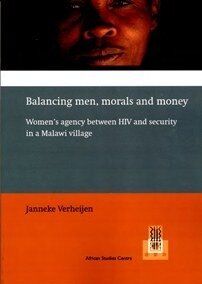
Categories
Search
Shopping cart
Recent publications
- Books /
- ASC publications /
-
Balancing men, morals and money : women's agency between HIV and security in a Malawi village

Information:
ISBN
978-90-5448-132-4
Auteur
Janneke Verheijen
Uitgeverij
Leiden : African Studies Centre

